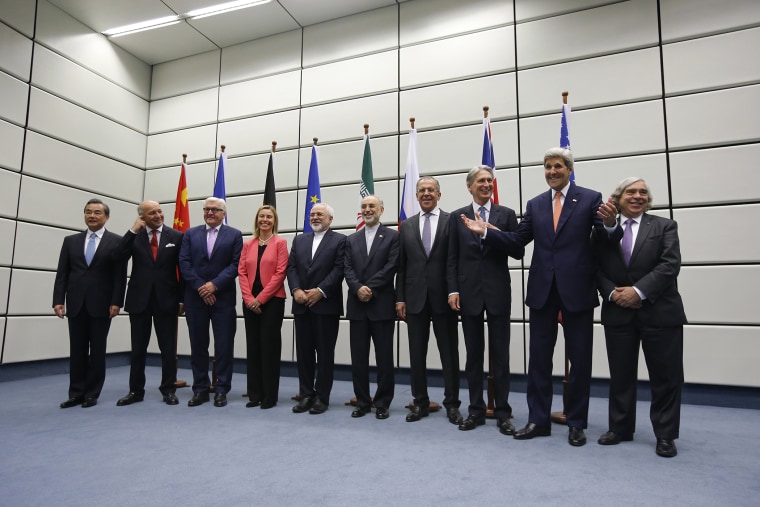We now have a score sheet on Iran's compliance with its nuclear commitments from the International Atomic Energy Agency, which is responsible for monitoring Iran's nuclear activities, and from American officials. Since the deal was reached last July, Iran has, as required, removed and placed in I.A.E.A.-monitored storage two-thirds of the 19,000 centrifuges it used for uranium enrichment at a facility at Natanz. It has ended all uranium enrichment, a process that can be used to produce nuclear bomb-grade fuel, and removed all nuclear material from its once-secret facility at Fordow. It has reduced its stockpile of enriched uranium from 12,000 kilograms, with a purity as high as 5 percent, to 300 kilograms, with a purity of no more than 3.67 percent and hence less usable as weapons fuel. The core of a heavy-water reactor at Arak has been filled with concrete. The bottom line: If Iranian officials decided to produce enough fissile material for a nuclear weapon, it would take at least one year; without the deal, it would have taken just two or three months. That has won over some critics of the agreement, like Moshe Ya'alon, who was until recently defense minister of Israel. Last month, he effectively endorsed it and said Iran no longer presented "an existential threat to Israel."
One year later, Obama gets the last laugh on Iran deal
Republicans did everything they could think of, included attempted sabotage, to derail the Iran nuclear deal -- but one year later, it's working anyway.

It wasn't easy, and the process nearly collapsed more than once, but exactly one year ago today, Americans learned of a historic diplomatic breakthrough: the United States and our negotiating partners had completed the Iran nuclear deal.
And despite all the far-right apoplexy, and the dire warnings about the agreement creating a security crisis, the editorial board of the New York Times noted the other day what is plainly true: the nuclear deal "is working" and has "made the world safer."
Sustaining the agreement will bring plenty of challenges, but a year ago, critics of the diplomatic solution made a series of hair-raising predictions -- all of which, at least for now, have failed to come to fruition.
Indeed, congressional Republicans did everything they could think of -- including taking the extraordinary step of trying to sabotage American foreign policy while negotiations were still underway -- to derail the agreement. One year later, however, their efforts appear even more misguided, and the Obama administration's assurances appear vindicated.
Of course, President Obama and his foreign policy team, who understandably see this as one of the great foreign policy achievements of this generation, won't be in office much longer. What happens if this administration is replaced by a Trump administration?
Just last week, Walid Phares, one of the Republican's top foreign policy advisers, suggested Trump would not scrap the Iran agreement -- no matter how many times the candidate vows to do the exact opposite.
It's difficult to know whether or not to believe this, largely because Trump is so erratic and unpredictable. But if the presumptive GOP nominee keeps his word and tears up the Iran deal, the consequences would be tragic -- all but guaranteeing the one outcome sane Americans want to avoid.